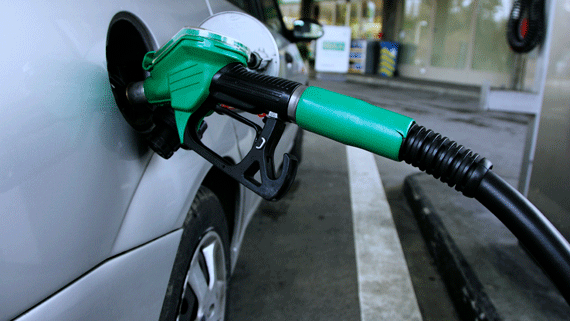
JOHANNESBURG — South African consumers, especially motorists, will have a better start to 2015, as the petrol price is set to drop by as much as R1,27 per litre tomorrow.
At the same time the price of liquefied petroleum gas (LPG) and paraffin will also drop significantly, thereby benefiting poor households in particular.
The drop in the various fuel prices will boost consumers’ disposable income, slow the rise in producer and consumer inflation and this, in turn, will have a positive effect on the outlook for interest rates.
The decline in international oil prices will also cut South Africa’s import bill and, in turn, reduce the trade gap between imports and exports.
The incoming fuel price cut is one of the biggest single monthly drops in history. The fall in the petrol price will be the fifth consecutive monthly decline.
93 octane petrol will fall by R1,27 a litre to R11,02 a litre from R12,29 a litre in December.
95 octane will drop by R1,23 to R11,24 a litre from R12,47 a litre in December. The Gauteng petrol price peaked at a record R14,39 a litre in April.
The Energy Department announced on Friday that the reason for the fuel price decreases was because of the continued drop in the price of crude oil which had resulted in a decrease in the prices of petroleum products such as petrol, diesel, paraffin and LPG.
- Chamisa under fire over US$120K donation
- Mavhunga puts DeMbare into Chibuku quarterfinals
- Pension funds bet on Cabora Bassa oilfields
- Councils defy govt fire tender directive
Keep Reading
On December 31, Brent crude oil fell to $55,81 (R652) a barrel, which was the lowest level for oil since 2009 as demand growth lowered from major economies and increased output from the US shale oil putting pressure on oil exporters, Reuters reported.
Late on Friday, Brent crude was quoted at $56,81 a barrel.
The price of diesel will decrease by either R1,04 or R1,05 per litre depending on the grade of diesel. Illuminating paraffin would see its price down by R1,44 per litre and the LPG price would drop by R2,10 per kilogram, said the department.
The plunge in international oil prices has helped reduce South Africa’s trade deficit.
In November, the trade deficit narrowed to R5,7 billion from a revised R21,6 billion in October as a plunge in oil prices curbed crude imports.
According to the Nedbank economic unit, the improvement in November has to be seen in the context of a very poor October figure, when exports contracted and imports rose significantly.
“Hopefully the latest data will be the start of some improvement as mining and manufacturing output normalises following the protracted strikes earlier in the year,” Nedbank said.
“Fortunately the sharp fall in the oil price has had the opposite effect, giving room for the monetary authorities to keep their stance in the face of the weak economic climate.”
For the first 11 months of last year the trade deficit widened to R101,13 billion from R73,22 billion in 2013, according to the SA Revenue Service.
Over this 11-month period, exports were up by 6,1% and imports by 8,6%.
On a month-to-month basis, exports fell by 5,3% with imports easing by 18,7%.
On a year-to-year basis, exports declined by 2,9% while imports were up by 4,5%.
— IOL










